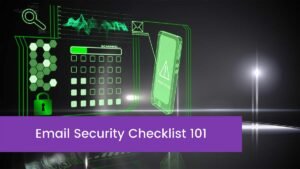Picture this: you’re running a hotel, and one morning, you wake up to the news that your guests’ personal data has been stolen. Scary, right? This is the reality in today’s tech-driven hospitality world. Hotels, resorts, and restaurants now depend on digital tools for everything from bookings to billing. But with great tech comes great responsibility – the responsibility to protect guest data.
Every day, hotels collect tons of personal information. If this data falls into the wrong hands, it can lead to serious trouble. If visitors feel untrustworthy about you handling their personal information, do you think they would return? This elevates cybersecurity beyond the level of an IT problem and positions it as a crucial component of hospitality customer service.
Recognizing the Hazards
- Phishing: Hackers trick your staff into giving away sensitive information.
- Malware: Harmful software that can steal data or damage your systems.
- Insider Threats: Sometimes, the danger is from within your own team.
Let’s examine some actual cases. Do you recall the 2018 Marriott data breach? Millions of visitors’ personal information was compromised by hackers. It was more than simply a security lapse; Marriott paid millions in fines and suffered damage to their brand. These instances highlight how crucial it is for the hotel industry to secure visitor data. It’s more important to maintain your guests’ confidence than it is to avoid penalties.
What this can lead to:
- Legal Problems: Failing to protect data can lead to lawsuits and fines.
- Money Loss: The cost of fixing a breach can break the bank.
- Poor Reputation: Visitors won’t make reservations with you if they don’t trust you.
Essentials of Cybersecurity
What safeguards are in place for visitor data? It all boils down to being knowledgeable and educated. Inform the group on cybersecurity. Create safe passwords. Make sure to monitor your systems for any odd activity. Do not forget to update your software.
You need the following resources to keep your digital area secure:
- Firewalls: They keep hackers out of your network by acting as network bouncers.
- Your first line of defense against malware and viruses is an antivirus program.
- Secure Wi-Fi: Ensure that your front door and Wi-Fi are both as secure.
It is crucial to get frequent checkups. Upgrade your systems on a regular basis. Acropolium’s hospitality IT solutions is one competent company you might want to consider working with. They are well aware of the intricacies of protecting guest information in hospitality software.
Practical Steps for Developers
Building a secure system is to engineers what readying a hotel for visitors is to them. Establishing a location where everything functions both securely and productively is crucial. This necessitates continuous problem-solving, the use of reliable software, and the creation of boundaries between test and production environments. Consider it as maintaining the prep area tidy and orderly, which is crucial for both security and efficiency.
The secret to success in coding is that every line matters. To correct any errors, you frequently need to update your code, encrypt important data, and double-check inputs. It all comes down to accuracy and focus on details, which are essential for efficient coding.
Developers have to test systems on a regular basis. Security audits and penetration testing must be performed. It helps you identify vulnerabilities before an attack may take advantage of them.
Providing Experiences That Are Safe and Secure
In the digital realm, laws such as the CCPA and GDPR are texts that everyone has to abide by. They lay out standards for handling and protecting private data. It is essential to comprehend and abide by these rules in order to protect the privacy of your visitors. It is not negotiable to comply with industry rules, such as PCI DSS for payment processing.
Just as health laws assure food safety in a kitchen, these standards are in place to guarantee that client data is handled with the highest care and security. There may be dire repercussions if these rules and regulations are disregarded. Refusal to comply may lead to severe penalties, legal problems, and a decline in clientele.
Serving Up Confidence: Ensuring a Trustworthy Experience
In order to gain and keep the trust of guests, the hotel sector must prioritize visitor data protection over technological difficulties. Hospitality firms can guarantee a safe and secure experience for their visitors by being aware of the dangers, adhering to best practices, abiding by the law, and developing a cybersecurity culture.
New difficulties may arise in the future, but the hospitality sector can continue to offer not just wonderful experiences but also peace of mind by working diligently and proactively.




